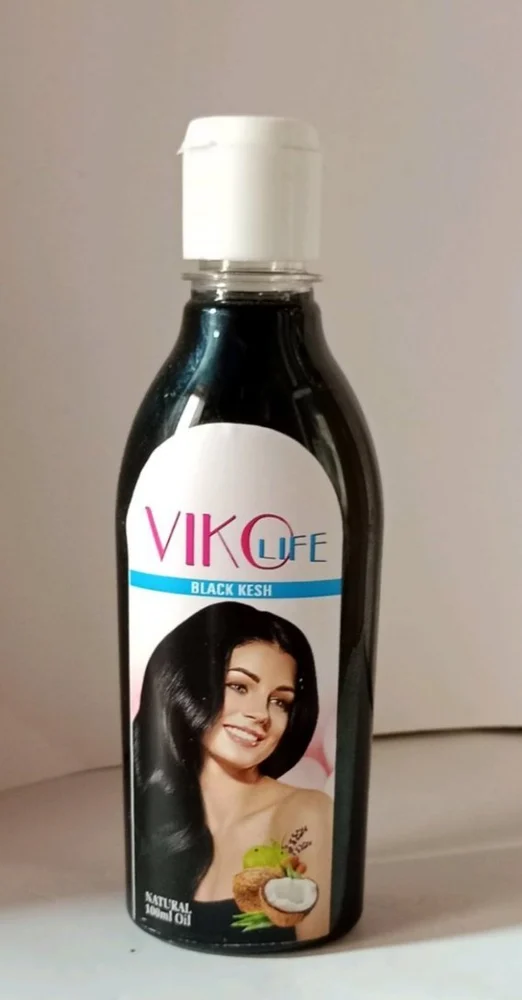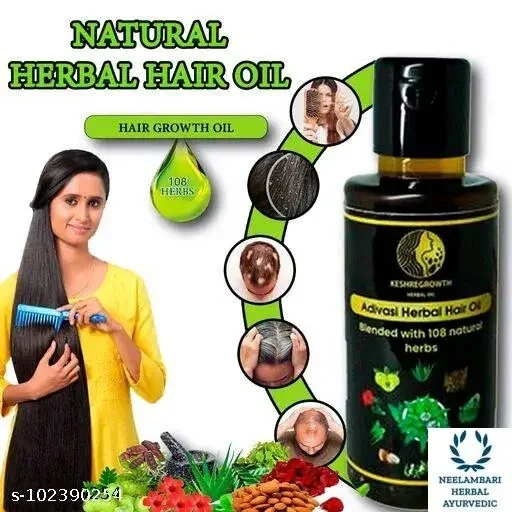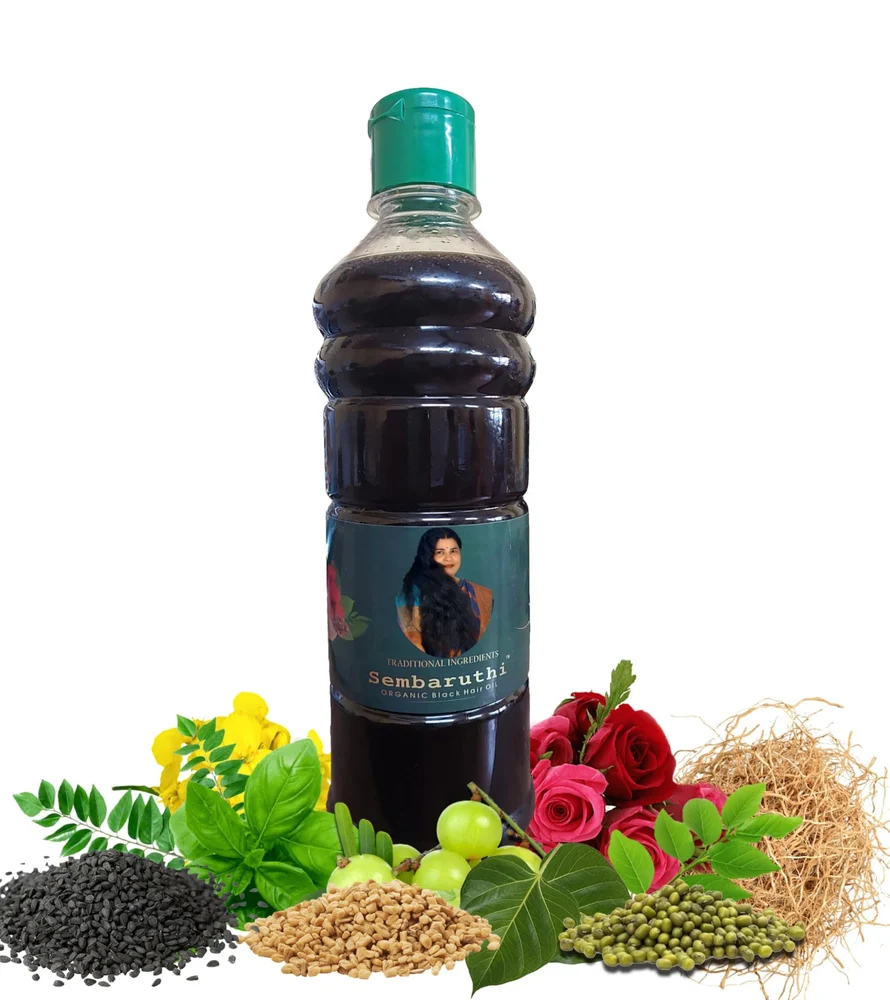Ayurvedic Black Kesh Hair Oil, Bottle, Packaging Size: 100 ml
₹25.0
| Packaging Size |
100 ml
|
| Packaging Type |
Bottle
|
| Type Of Skin |
Dry
|
| Form |
Oil
|
| Brand |
Vikolife
|
| Usage/Application |
Hair Growth
|
| Shelf Life |
2 Year
|
| Item Name |
Black Kesh
|
| Availability |
In Stock
|
| Packaging Size |
100 ml
|
| Packaging Type |
Bottle
|
| Type Of Skin |
Dry
|
| Form |
Oil
|
| Brand |
Vikolife
|
| Usage/Application |
Hair Growth
|
| Shelf Life |
2 Year
|
| Item Name |
Black Kesh
|
| Availability |
In Stock
|
You must be logged in to post a review.
Q & A
cientific sustainability report — Herbal Love Kesh Hair Oil (Bhringraj base) — 100 mL
Format: small & precise screening LCA (cradle → regional warehouse) with a reproducible scientific calculation.
Headline KPI: ≈ 0.46 kg CO₂-eq per 100 mL bottle (screening estimate; see stepwise calc & assumptions).
Scope & functional unit
-
Functional unit: 1 × 100 mL retail-ready bottle (Bhringraj-infused oil using a carrier-oil proxy).
-
System boundary: cradle (raw-ingredient production & primary processing) → manufacture (mixing, filling, labeling) → transport to regional warehouse. Excludes consumer use and end-of-life.
Key assumptions (explicit — change any and result scales linearly)
-
Volume → mass: 100 mL × 0.92 g/mL = 0.092 kg oil (carrier oil proxy — sesame/coconut typical in Ayurvedic oils).
-
Ingredient upstream (herbal infusion + carrier oil proxy): 3.81 kg CO₂e / kg oil (median from vegetable-oil LCA literature).
-
Bottle: amber glass 100 g (0.100 kg); glass production EF used ≈ 0.60 kg CO₂e / kg glass.
-
Cap + label: 3 g (0.003 kg) mixed plastic/paper; proxy EF 2.15 kg CO₂e / kg (plastic average).
-
Manufacturing electricity: 0.05 kWh per filled bottle.
-
Grid emission factor (India): 0.727 kg CO₂e / kWh.
-
Distribution: 200 km by road truck; freight factor 0.069 kg CO₂e / tonne-km.
Stepwise scientific calculation (reproducible)
-
Ingredients (herbal + carrier oil)
0.092 kg × 3.81 kg CO₂e/kg = 0.3505 kg CO₂e -
Glass bottle (packaging)
0.100 kg × 0.60 kg CO₂e/kg = 0.0600 kg CO₂e -
Cap + label
0.003 kg × 2.15 kg CO₂e/kg = 0.0065 kg CO₂e -
Manufacturing electricity
0.05 kWh × 0.727 kg CO₂e/kWh = 0.0364 kg CO₂e -
Transport (200 km truck)
Total product mass ≈ 0.092 + 0.100 + 0.003 = 0.195 kg = 0.000195 t
200 km × 0.000195 t × 0.069 kg CO₂e/t-km = 0.0027 kg CO₂e
Total (cradle → warehouse) = 0.3505 + 0.0600 + 0.0065 + 0.0364 + 0.0027 = 0.4561 kg CO₂e ≈ 0.46 kg CO₂e per 100 mL bottle
Quick interpretation (one-liners)
-
Ingredient upstream (herbal + carrier oil) is the dominant contributor (~77% here).
-
Glass packaging and manufacturing electricity are meaningful secondaries.
-
Short-haul transport is negligible at this scale but can grow with longer or air freight.
Priority improvement actions (high impact, low effort)
-
Source lower-impact carrier oils / concentrated extracts (local, low-input agriculture or suppliers with LCA data) — biggest single reduction.
-
Use recycled-content glass (cullet) or lighter packaging (rGlass, rPET, or refill pouches) to cut packaging emissions.
-
Reduce energy per bottle (optimize heating/filling, larger batch fills) and/or switch to renewable electricity.
-
Offer refill or concentrate options to reduce per-unit packaging and transport impacts.
Suggested KPI to track monthly
-
kg CO₂e per 100 mL bottle (start with screening ≈ 0.46 kg CO₂e and update using measured bottle mass, supplier EF for the oil, actual kWh per batch, and real transport km).
References (kept here at the end as requested)
-
Central Electricity Authority — CO₂ Baseline Database / India grid emission guidance (used 0.727 kg CO₂e/kWh). Central Electricity Authority+1
-
Median life-cycle GHG for refined vegetable oils — ~3.81 kg CO₂e/kg (used as a proxy for carrier oil + infusion upstream). ScienceDirect+1
-
Container glass life-cycle studies (India) — used ~0.60 kg CO₂e/kg for small glass bottles. AIGMF+1
-
PET / plastic packaging and mixed plastic LCA references (for cap/label proxy). ScienceDirect+1
-
Road-freight emission factor — 0.069 kg CO₂e / tonne-km (freight emission datasets/methodology). Climatiq+1
General Inquiries
There are no inquiries yet.





Reviews
There are no reviews yet.